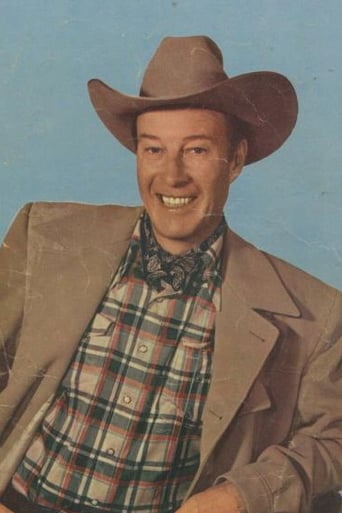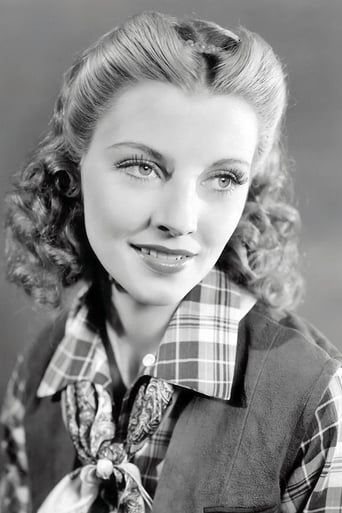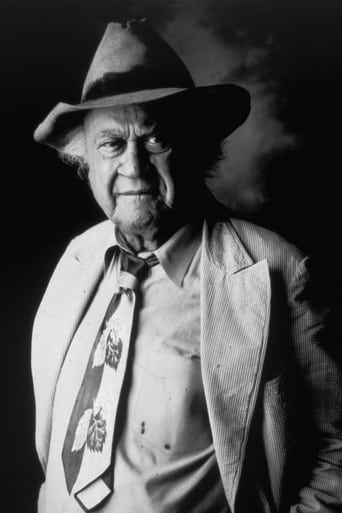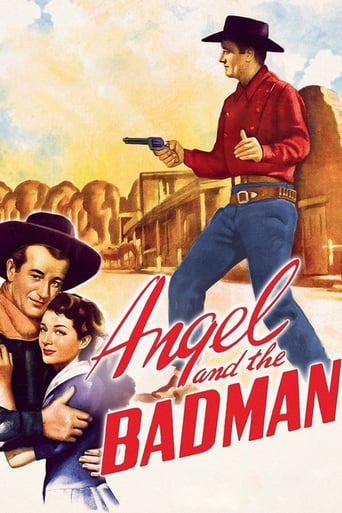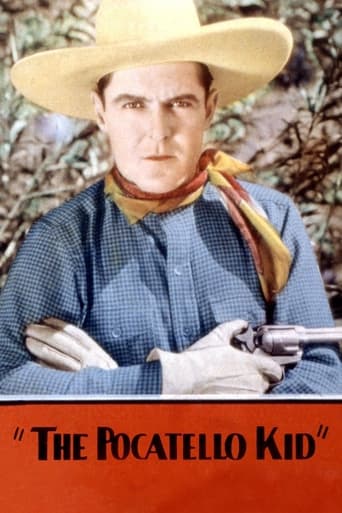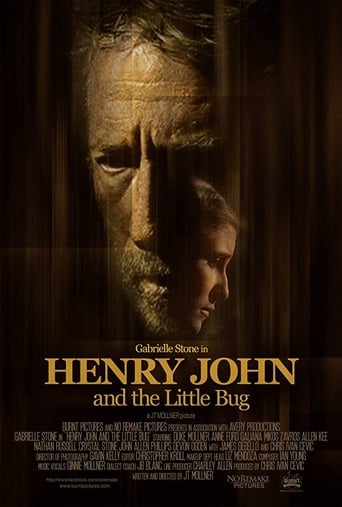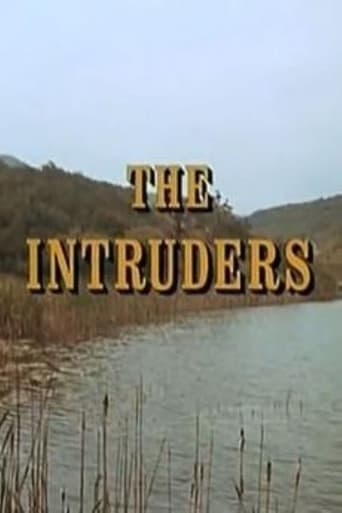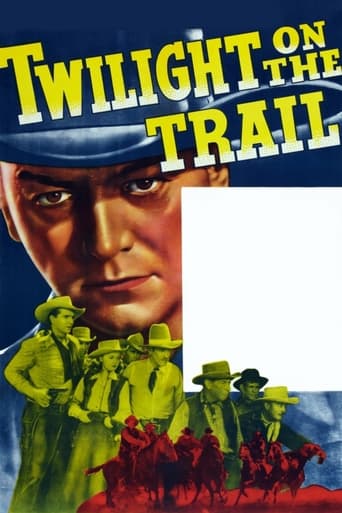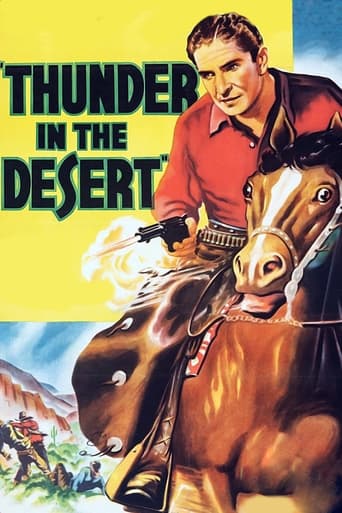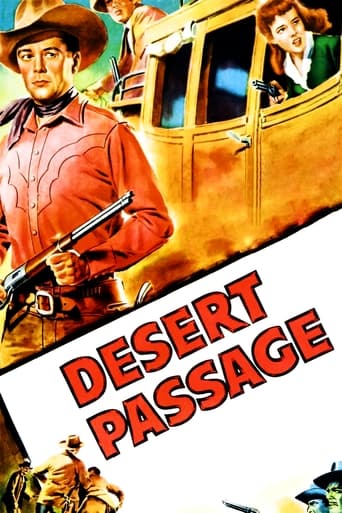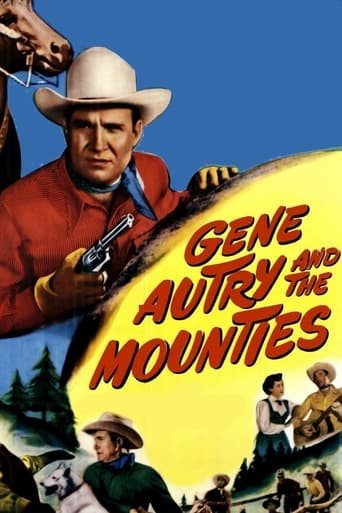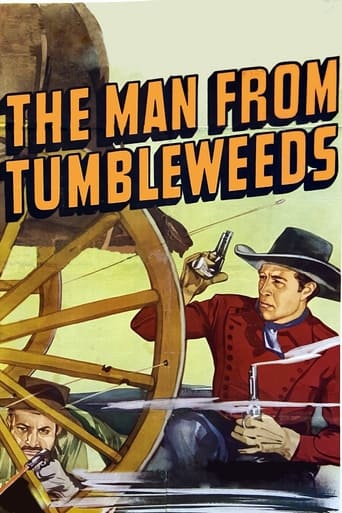
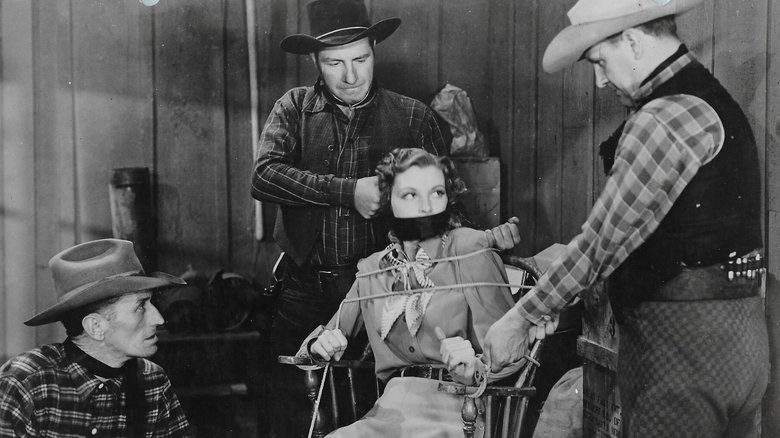
The Man from Tumbleweeds (1940)
Wild Bill Saunders recruits a team of paroled convicts to subdue a lawless gang.
Watch Trailer
Cast
Similar titles
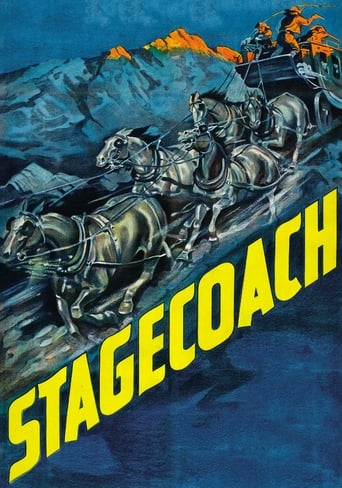
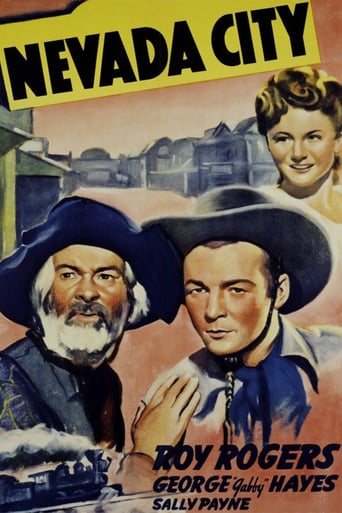
Reviews
People are voting emotionally.
It's an amazing and heartbreaking story.
The film never slows down or bores, plunging from one harrowing sequence to the next.
It's simply great fun, a winsome film and an occasionally over-the-top luxury fantasy that never flags.
There's lots of six-gun action and hard riding with more intrigue than usual for a matinée entry. Crime boss Kilgore is pillaging the state until Wild Bill arrives to head up a ranger force recruited from the state prison. Everybody's got a sneaky plan to nail the opposition. Add a tricky informant who goes back and forth between the sides, and you may need a scorecard.Elliot is really good at being tough and even downright mean when the occasion calls for it. In my book, he's one of the few matinée heroes who could also play a bad guy as well as a good. Here, however, he stays pretty nice, but is still convincing as the head ranger. Pretty girl Meredith gets more plot than usual for pretty girls and even gets to sling a gun at the bad guys.Of course, no one expects high drama from these matinée specials. Still, this one's notable for its cult director, Joseph H. Lewis, who was clearly perfecting his technique with crashing windows and complex plots. Too bad the action itself never gets out of the scrubby LA area, but Lewis makes good use of what he's got. Okay, this former Front Row kid still looks at these oaters with 12-year old eyes, so I'm probably not the best critic. But I still think it delivers the goods for old time fans.
The Man from Tumbleweeds (1940)The claim to fame here is slight--it's directed by Joseph H. Lewis, later famous for some inventive, raw low budget movies like "Gun Crazy" (1951). It is directed with his usual fast, visual panache, though he's inexperienced here and it shows. The script is pretty routine, too, and so when the dialog intrudes, it intrudes.But it's fast, there are several turns of events, one of the main characters is a woman sheriff, and there are lots of gun fights, horse chases, double crossing, and broad black and white landscape. I liked it more than I should have, and it's partly how really well it was directed. With better actors and better dialog, this would easily be memorable.This is one in a series of one hour Westerns starring actor Bill Elliott, a sheriff who loved to be violent to bring in the bad guys, and would say, "Some folks call me Wild Bill. But I'm a peaceable man." It's the only Elliott film Lewis directed.Elliott was an Old West kind of character himself, and was the lead in several movie (low budget) serials, playing detective Gordon Elliott in some 28 of them, then a turning point came when Elliott (as Gordon Elliott) played Wild Bill Hickcok, the historical figure as portrayed in the 1938 movie. After this he played in Westerns for two decades. In the first four in the series, he played Wild Bill Saunders, and this is the third of them, all for Columbia Pictures. Then he switched to the more famous Wild Bill Hickcock himself for 12 films. When he moved to Republic pictures he starred as himself, Wild Bill Elliott.Should you see this? Why not? It's nothing much, but it's not bad, if you like Westerns of this sort. Any John Ford movie is better, of course, but this short and exciting. Oh, and don't be fooled by the opening credit that says Hygo Television Films--that was added for the 1953 re-release for t.v.
Wild Bill Elliott, who got his moniker from playing Wild Bill Hickok in a popular serial, used the name Wild Bill Saunders in four films for Columbia. Wild Bill's trademark was wearing the two guns in his holster butt forward yet still drawing them in a traditional manner then swirling them around to put them back. Wild Bill was no phony. He was an expert horseman and had been since youth. Another trademark was calling himself a peaceable man yet using as much firepower as needed to knock down the bad guys.This time around, Wild Bill attempts to put together a group of state rangers to clean up a band of outlaws led by the notorious Powder Kilgore (Ray Bennett) who lets one of his henchmen called Lightning (Francis Walker, not a name that invokes fear and dread) do his dirty work so he can stay free of the law. The outlaws work from a hideout which serves as a meeting house to plot and make plans for robbery of wagon trains operated by 'Spunky' Cameron (Iris Meredith) who has the hots for Wild Bill. In a novel twist at the time, Wild Bill hits on a ploy to use real-life killers who are incarcerated in the state prison to organize the rangers, since the governor is short on funds and willing gunslingers. This idea would reach its fruition in the hit movie "The Dirty Dozen" years later. Needless to say not all the criminals who are promised full pardons for their work are to be trusted. Some wise advice: Never trust a criminal who is called Shifty Sheldon. Wild Bill ultimately succeeds but not before a lot of action-packed adventure takes place. "Brother Bill" has a colorful exist on his paint as he rides out of town headed for Texas and more rip-snorting action leaving Spunky to dream about what could have been.Cannonball (the redoubtable Dub Taylor) served as Wild Bill's comical sidekick in his Wild Bill Saunders films. He doesn't get to show his virtuosity on the xylophone this go around but has a few comic routines of note such as when he is "charred" by explosives when he throws them away from the jail house to save the day.This Wild Bill outings has one major weakness. Though the story is a clever one, the script falters from time to time. There are plot holes aplenty and much is predictable. The lines given Wild Bill and Cannonball are at times somewhat silly. Otherwise, this is a fine Wild Bill Sauders flick.
Despite its low-budget B-movie origins and its brisk 59-minute running time, this Wild Bill Elliot horse opera qualifies as one of the earliest examples of a movie where society enlists convicts to establish law and order to the frontier west. Typically, most moviegoers think that "The Dirty Dozen" introduced the parole-the-prisoners plot, but this 1940 sagebrusher used that idea long before director Robert Aldrich appropriated it for his anti-heroic, behind-enemy-lines, World War II-themed blockbuster. In fact, the parole-the-prisoners plot turned up earlier in Burt Kennedy's western sequel "Return of the Seven" (1966), Roger Corman's behind enemy lines W.W. 2 opus "The Secret Invasion" (1964), and Richard Bartlett's "Two-Gun Lady" (1956).When trigger-happy outlaws lay down the rule of lawlessness in the town of Gun Sight by the, two-gun toting Bill Saunders (Bill Elliot) rides to the rescue. "My name's Wild Bill, but I'm a peaceable man," says Bill to just about everybody. Unlike most western champions, Bill packs his brace of pistols in his holsters with the handles reversed so the hammers face away from him when he draws. Kilgore (Ray Bennett) and his gang of henchmen have been hijacking wagon trains as free and easy as hawks until 'Spunky' Cameron (western heroine regular Iris Meredith), daughter of wagon train boss Jeff Cameron, sends Cannonball (veteran western sidekick Dub Taylor of "Bandolero") to find Wild Bill to restore order. As a tough-as-nails villain, Kilgore proves his credentials from the get-go by gunning down old Jeff on Main Street in broad daylight. Unfortunately, since Jeff (Edward LeSaint of "The Green Hornet") shucked his six-shooter first, Kilgore cannot be arrested for what constitutes 'self-defense.' Meantime, Cannonball hightails it to another dusty western hamlet just in time to watch Wild Bill foil a bank robbery single-handedly against three armed assailants. Cannonball brings Bill and Spunky together to discuss the lawlessness, and Bill visits Governor Dawson (Don Beddoe of "Night of the Hunter") to round up some gunmen to create a state police to hunt down these hooligans. Dawson explains to Will Bill that the legislature has wrapped his plans up in red tape so he hasn't had any luck. Wild Bill proposes another plan: release some of the deadliest six-gunners in prison into his custody to flush out the bad guys and award the convicts with paroles if they help him corral these heavies. Of course, everything works out in the long run, but there are a couple of surprises along the way. Director Joseph H. Lewis, who later went on to fame directing TV westerns like "Bonanza," "Branded," "The Rifleman," and "The Big Valley," keeps things moving at a swift clip. The only drawback is during a stagecoach shoot-out several gunhands believe that they are bulletproof enough to stand out in the open and swap lead without consequences. Later, the much talking about but hard to locate secret hideout that Kilgore and his men operate out of is neither as secret nor as exotic as the secret hideout in most westerns like the 1954 Nicholas Ray oater "Johnny Guitar", but then the low budget accounts for that shortcoming. Scenarist Charles F. Royal's screenplay for "The Man from Tumbleweeds" is again one of the earliest examples of a Hollywood movie where the heroes have to rely on henchmen fresh out of prison to help them. Royal's dialogue is worth quoting, too.
